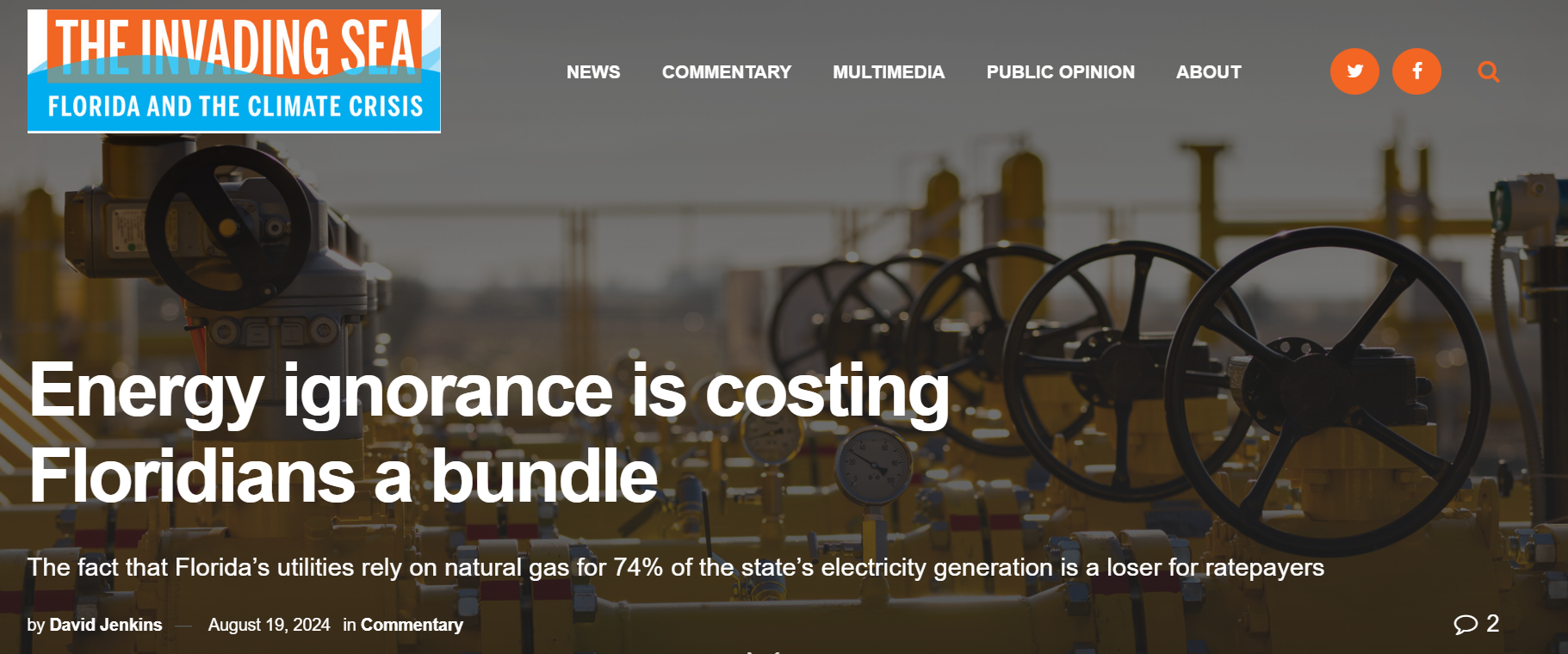Headline News Archive

The University of Miami research will engage a wide array of stakeholders across five key themes: western water resources, heat waves, coastal flood risk, wildfire risk, and extreme wind events. It aims to provide access to crucial datasets and analysis procedures while promoting education for the next generation of climate projection translators.
Earth faces a climate emergency which renders conservation goals largely obsolete. Current conservation actions are inadequate because they (i) underplay biodiversity's role in maintaining human civilisation, which contributes to its marginalisation, and (ii) rely on false assumptions of how to catalyse transformative change.
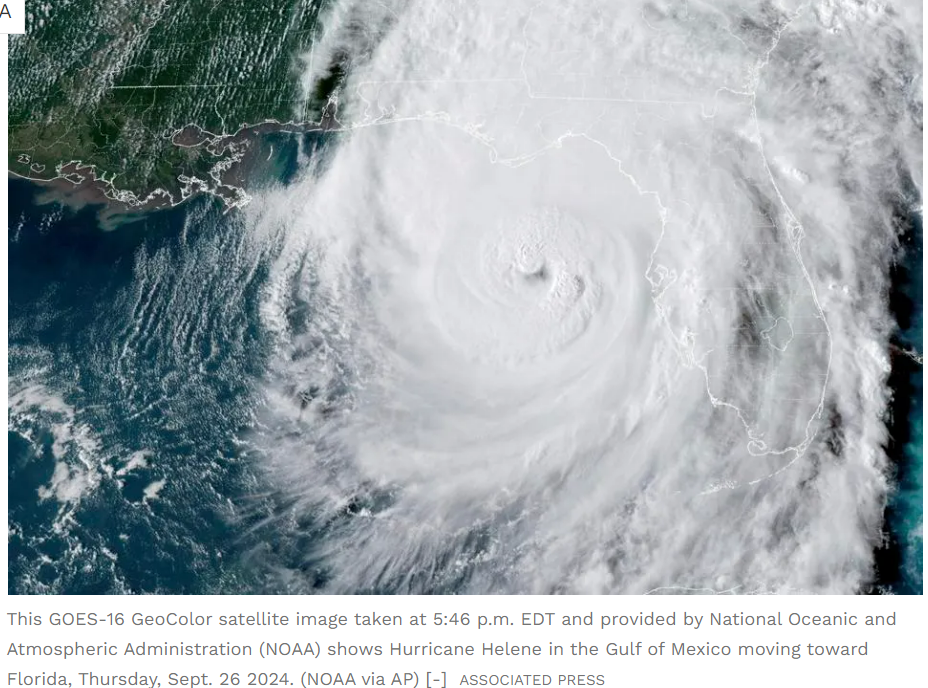 By Marshall Shepherd via Forbes
By Marshall Shepherd via Forbes
Hurricane Helene did what a Category 4 storm does. It caused destruction through extreme winds, storm surge, rainfall, and tornadoes. The sheer size of the storm also extended those impacts across many states.

FCI Co-Director, Sadie Ryan, contributes to this important piece.
Some researchers have described this as a steady move to "a warmer, sicker world". But to understand why this is happening, we need to understand a little more about the biology of mosquitoes and their life cycles.

A new interagency resource on U.S. sea level change, SeaLevel.GlobalChange.gov, is now available to the public. This platform represents the first whole-of-government resource for coastal residents and decision-makers on sea level rise projections, associated impacts, and adaptation measures.
This site pairs a dynamic delivery of the latest research on sea level change with foundational educational content on how and why sea level rise is happening, its impacts, and actions that can be taken to address the challenges coastal communities face from rising seas.
Explore more and register for webinar at https://sealevel.globalchange.gov/
The USGCRP also released a new federal interagency resource to support people in teaching, communicating, and making decisions about climate change. Climate Literacy: Essential Principles for Understanding and Addressing Climate Change presents information that is important for individuals and communities to understand about Earth’s climate, impacts of climate change, and solutions.

An increase in extreme heat and severe droughts lops off about 0.2% of a country’s GDP, a new study found.
Severe weather costs the global economy billions of dollars a year, highlighting the costs of climate change and the value of mitigating extreme weather, according to a new analysis of weather and economic data.
“This research gives guidance to policymakers to consider what kind of extreme events we should adapt to,” said Berkay Akyapi, Ph.D., co-author of the new study and a professor of business at the University of Florida. “If we don’t do anything to respond to these climate shocks, we are hurting the economy.”

By A.R Siders
U.S. towns are building new housing and infrastructure in their floodplains – but not as much as expected, and the tools to stop it may be more routine than we imagined.
Those are the key takeaways from two new papers: one in Oxford Open Climate Change OUP Academic (Siders et al.) today and one in Earth’s Future last week (Agopian et al). The findings could change how advocates, floodplain managers, and a new administration, think about policy reforms for flood risk management.
 The United States faces an increasingly complex set of challenges from shocks and stressors to our systems. By understanding these challenges and applying a unified, whole community approach to addressing them, we can strengthen our collective security and resilience so that we can overcome these ever-evolving challenges and thrive as a nation.
The United States faces an increasingly complex set of challenges from shocks and stressors to our systems. By understanding these challenges and applying a unified, whole community approach to addressing them, we can strengthen our collective security and resilience so that we can overcome these ever-evolving challenges and thrive as a nation.
Read the FULL REPORT
 Check it out these innovative ideas for managed retreat by A.R Siders et. al.
Check it out these innovative ideas for managed retreat by A.R Siders et. al.
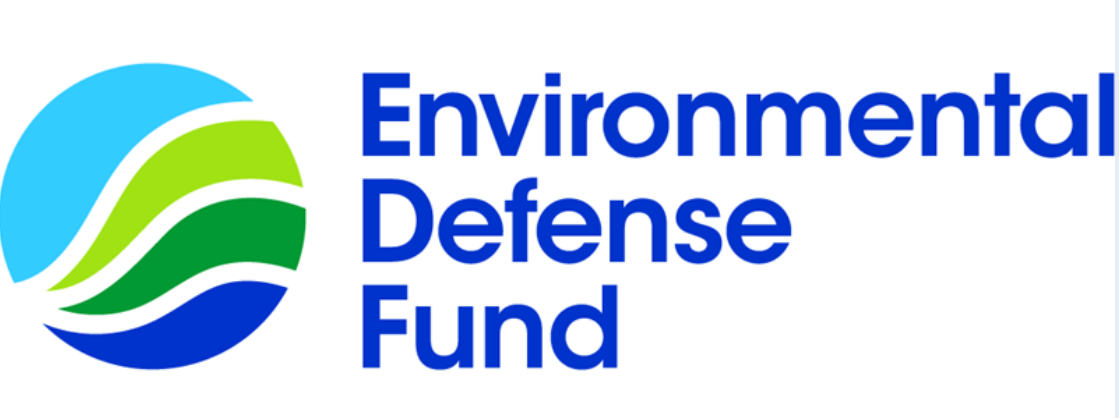 Environmental Defense Fund, a nonprofit that advocates for coastal and flood resilience, is seeking input to position Florida as a leader in nature-based solutions (NBS), including natural areas and artificial structures that harness nature.
Environmental Defense Fund, a nonprofit that advocates for coastal and flood resilience, is seeking input to position Florida as a leader in nature-based solutions (NBS), including natural areas and artificial structures that harness nature.
Professionals working in Florida on any aspect of implementing NBS, from planning and constructing to monitoring and maintenance, are encouraged to complete a brief survey identifying recommendations that reduce barriers to and incentivize these vital solutions.
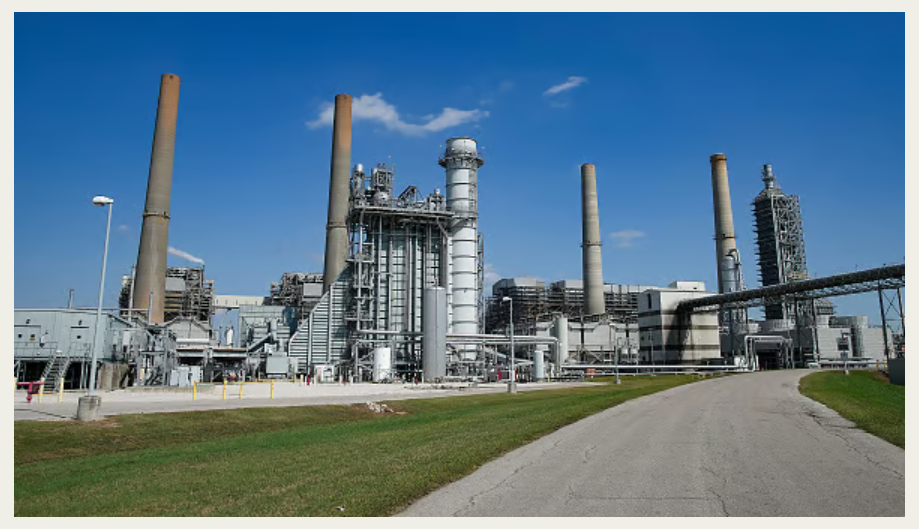 This spring, Democrats wrapped up a nearly three-year investigation into the fossil fuel industry’s role in climate disinformation, and asked the Department of Justice to pick up where they left off.
This spring, Democrats wrapped up a nearly three-year investigation into the fossil fuel industry’s role in climate disinformation, and asked the Department of Justice to pick up where they left off.
In House and Senate Democrats’ final report and hearing, investigators concluded that major oil companies had not only misled the public on climate change for decades, but also were continuing to misinform them about the industry’s preferred climate “solutions”— particularly biofuels and carbon capture.
 In episode 210 of America Adapts, Dr. Carolyn Kousky, Associate Vice President for Economics and Policy at the Environmental Defense Fund, returns to discuss the climate challenges in Florida's property insurance market. She outlines how Florida faces significant economic risks due to hurricanes and other disasters, with 36 presidential disaster declarations since 2000.
In episode 210 of America Adapts, Dr. Carolyn Kousky, Associate Vice President for Economics and Policy at the Environmental Defense Fund, returns to discuss the climate challenges in Florida's property insurance market. She outlines how Florida faces significant economic risks due to hurricanes and other disasters, with 36 presidential disaster declarations since 2000.
The episode delves into the complexities of the state's insurance system, focusing on three key programs: Citizens Property Insurance Corporation, the Florida Hurricane Catastrophe Fund, and the Florida Insurance Guarantee Association.
Dr. Kousky addresses the reliance on smaller insurance companies; the critical role of reinsurance; and the impact of climate change on insurance pricing and availability. Doug and Carolyn have a broader conversation about the insanity of the Florida system of the existing property insurance market and how it could lead to price gouging for Florida citizens living in less at risk areas of the state.
 Claudia Sheinbaum, a climate scientist and former mayor of Mexico City, became the first woman to be elected president of Mexico, winning Sunday’s vote in a landslide.
Claudia Sheinbaum, a climate scientist and former mayor of Mexico City, became the first woman to be elected president of Mexico, winning Sunday’s vote in a landslide.
Sheinbaum, 61, received nearly 58 percent of the vote, according to preliminary results from the Mexican electoral office.

High ocean heat content and the anticipated development of La Niña are expected to fuel an above average hurricane season in the North Atlantic this year, according to the US National Oceanic and Atmosphere Administration (NOAA).
NOAA’s Climate Prediction Center forecasts a range of 17 to 25 named storms (average is 14). Of those, 8 to 13 are forecast to become hurricanes (average is 7), including 4 to 7 major hurricanes (average is 3).
FULL STORY
NBC MIAMI STORY with John Morales
 The Florida Policy Project in partnership with Carolyn Kousky, PhD and Lorilee Medders, PhD, are releasing The Evolution of Florida’s Public Private Approach to Property Insurance. This extensive, deep-dive report provides a primer on Florida’s insurance market. The report describes in detail the past, current and future opportunities for property insurance in Florida.
The Florida Policy Project in partnership with Carolyn Kousky, PhD and Lorilee Medders, PhD, are releasing The Evolution of Florida’s Public Private Approach to Property Insurance. This extensive, deep-dive report provides a primer on Florida’s insurance market. The report describes in detail the past, current and future opportunities for property insurance in Florida.
FULL REPORT
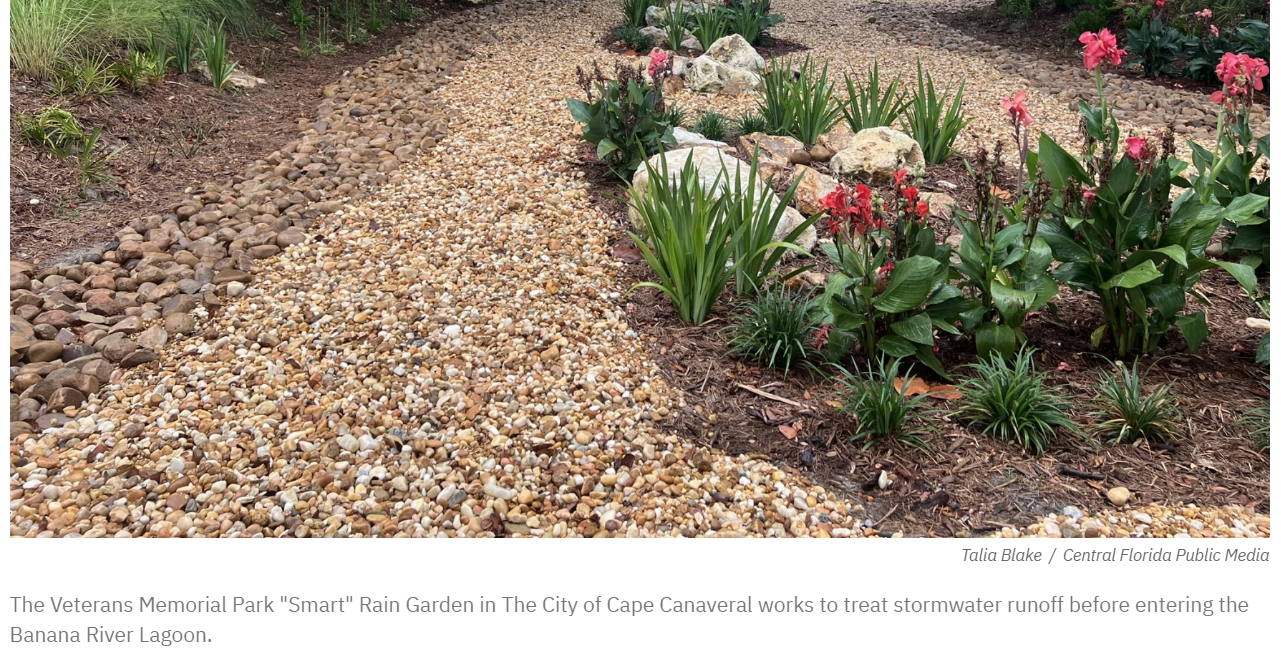 Climate change is impacting Central Florida municipalities’ budgets and is expected to cause major budget losses as cities rely on property taxes from coastal structures that may be underwater in the future, according to a study from researchers at Florida State University and Cornell.
Climate change is impacting Central Florida municipalities’ budgets and is expected to cause major budget losses as cities rely on property taxes from coastal structures that may be underwater in the future, according to a study from researchers at Florida State University and Cornell.
Researchers believe the United States will likely see two feet of sea level rise over the next 21 years, and chronic or bi-weekly flooding will cause property values to drop, among other things.
FULL STORY AND INTERVIEW with Linda Shi (Cornell), William Butler (FSU), and Zachary Eichholz (Cape Canaveral)
 As researchers increasingly face many kinds of attack over their work, there is debate about how to support and protect them.
As researchers increasingly face many kinds of attack over their work, there is debate about how to support and protect them.
Every day around the world, scientists are being abused and harassed online. They are being attacked on social media and by e-mail, telephone, letter and in person. And their reputations are being smeared with baseless accusations of misconduct. Sometimes, this escalates to real-world confrontations and attacks.
Such threats to scientists aren’t new; those researching climate change and gun control, for example, have endured abuse for decades.
FULL ARTICLE in Nature
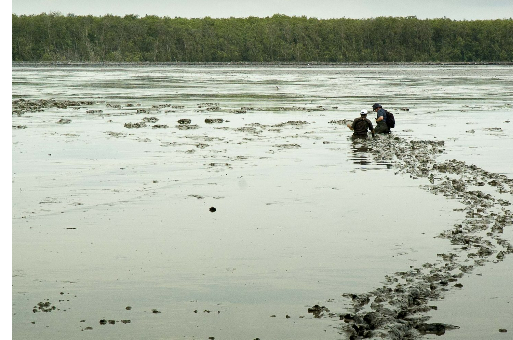 Mud holds profound insights into how our planet operates. It serves as a linchpin in how carbon moves around our planet. It’s a key player in regulating Earth’s climate by storing and cycling carbon. Mud also acts as a repository for organic carbon, playing a pivotal role in its sequestration and burial across landscapes.
Mud holds profound insights into how our planet operates. It serves as a linchpin in how carbon moves around our planet. It’s a key player in regulating Earth’s climate by storing and cycling carbon. Mud also acts as a repository for organic carbon, playing a pivotal role in its sequestration and burial across landscapes.
According to a comprehensive new study out in Nature Geosciences, University of Florida Geological Sciences Professor Thomas Bianchi and his colleagues document that mud, and the tremendous stores of organic carbon it holds within its matrix, is shifting where it is and isn't at a global scale due to human activity and climate change. These shifts have tremendous implications for the fate and carbon storage benefits of coastal wetlands, including salt marshes and mangrove forests, and as well as the rich biodiversity that is sustained by the world's tidal mudflats.
- How Does the Florida Wildlife Corridor Help Provide Resilience to Climate Change?
- Companies Ignoring Climate Risks Get Punished By Markets, New Study Reveals
- UF Researchers Develop Helpful Conservation Tool Using Data Analytics
- 1) Florida’s Decarbonized Future: Net Zero Power System and Net Zero Economy Can Drive Economic Growth


